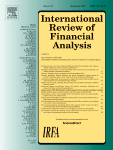RESOURCES
Videos
The Public Bank Solution offers insights into the new national movement to create publicly-owned city and state banks. These public-interest banks can provide transformative effects on government finance by helping break the cycle of acquiring more private debt that results in rising taxation to service that debt.
Our mission is to inspire, enable, and support creating Public Banks to return control of money and credit to states, cities, municipalities, and communities. Our vision is to transform our monetary and banking system so it functions in the public interest and results in broadly shared prosperity.
Pod Cast
“It’s Our Money with Ellen Brown” provides a unique view behind the curtain of global finance and the monetary system by one of the top experts in the field. Listen here.
Monthly Conference Call
Public Banking Institute has a monthly hour-long conference call on the second Friday each month starting at Noon Eastern time. Sign up here.
Ellen’s articles are published in scores of major national outlets and can be found at www.EllenBrown.com The following article is a good example of her contribution to this field:
The Public Bank Option – Safer, Local and Half the Cost
Ellen Brown: The Web of Debt & The Public Bank Solution
From the best-selling author who helped launch the public banking movement, The Web of Debt is considered “the bible” for understanding theoretical underpinnings of public banking.
Scott Baker: America Is Not Broke
Demythologizing the prevailing paradigm of debt opens new doors and eyes for problem-solving public finance issues.
The unsustainability of the American economy is as familiar as the newscycle. There is no money for social programs, no money to run the government, no money to cut taxes, and above all, we have to cut, cut, cut.
But, what if it’s not true?
Instead of familiar complaints about the national debt, leading to just slicing a shrinking economic pie differently, or worse, to Austerity Economics, the reality is that we already have all the wealth we could ever need. The tried and proven proposals in America Is Not Broke would guarantee America’s prosperity, fairness, democracy, and economic and ecological sustainability. Four multi-trillion dollar reforms: Sovereign Money, Georgism, Public Banking, and Ending Government Financial Asset Hoarding, plus a few other major reforms, show how we can have it all, if we only learn where to look.
Gary Flomenhoft: Exploring a Public Bank for Vermont
One of the first significant initiatives in creating a new American public bank was in Vermont. This effort produced a sweeping disclosure document of how such a bank could work and what its impacts would be. Gary Flomenhoft’s study set a standard for project review and a comprehensive look at some of the critical impacts the bank could help produce.
OTHER RESOURCES
Dirty Deals: How Wall Street’s Predatory Practices Hurt Taxpayers and What We Can Do About It
Report by Saqib Bhatti
Central to virtually all government fiscal environments is the high cost of debt service and borrowing. Wall Street has honed a highly profitable channel for themselves that now serves a $5 Trillion market, propelled by taxpayer dollars. The predatory nature of these relationships is exposed in this landmark study.
Benefits For Cities and Municipalities Of a Public Bank
The benefits of having a publicly-owned bank are summarized in this report and provides a quick look at some of the primary questions often asked by government administrators.
Banking on America
Shortly after the start of the national public banking movement, democracy think-tank Demos issued this in-depth look at the impact such banks could have on local and state economies through this comparative look at relevant economic considerations.
International Review of Financial Analysis
Where does money come from? The majority of public officials don’t have a clue. Noted Economics Professor Richard Werner goes deep in this virtually-forensic examination of how currency and credit are created. Hint: it doesn’t involve a printing press.













